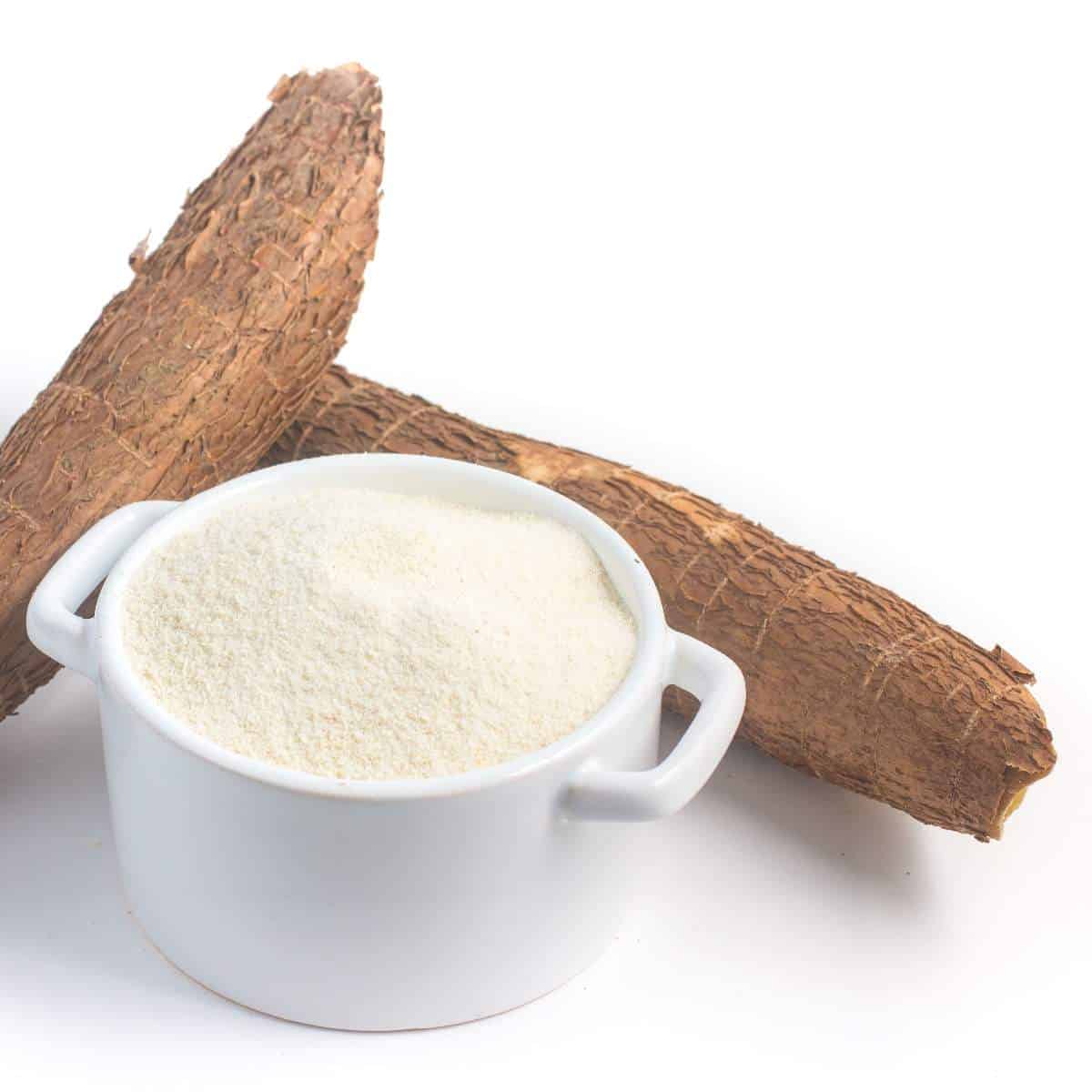
The best cassava flour substitute will help you whip up your favorite gluten free tortillas, pasta, bread, viands, and more without the flour itself. You also won't have to worry about missing out on essential nutrients since the ingredients I included in my list are also healthy natural options. You'll also find substitutes that will work for other special dietary requirements, such as keto and Paleo.
8 Best Cassava Flour Substitutes
Understandably, an ingredient won't be a good substitute if it's more difficult to find in most grocery stores. That's why I made sure the following cassava flour substitutes are easily accessible; you might even have some of them in your pantry already:
1. Tapioca Starch
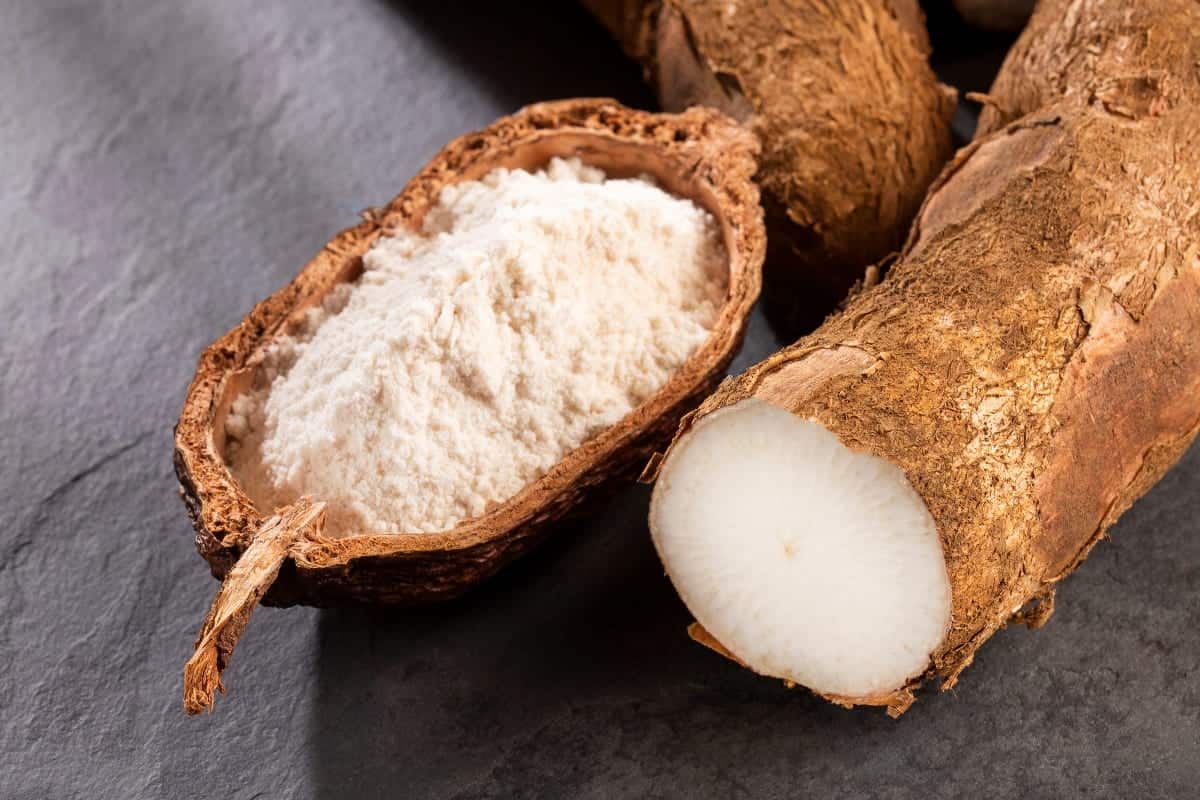
Tapioca starch, also known as tapioca flour in some regions, is also made from the cassava plant, so it's one of the top cassava flour substitutes that will work well for sweet and savory recipes. However, there is a slight difference.
To make cassava flour, the plant's entire root needs to be ground completely. Meanwhile, the starchy pulp of the root undergoes juicing and evaporation to make tapioca starch.
This difference in production is why tapioca starch has a lower amount of fiber and carbohydrates but is higher in potassium than cassava flour. Likewise, tapioca starch has a milder flavor and weaker thickening properties than cassava flour.
Hence, I usually double the amount of tapioca starch when I use it to substitute cassava flour in my recipes.
What if you want thicker soups and sauces? Use the same amount of tapioca starch as what your recipe requires for cassava flour but add another thickening agent. I recommend xantham gum, as it's also gluten free.
For the mixture to be effective, combine two parts tapioca starch and one part xantham gum.
Best for just about anything.
2. Corn Starch
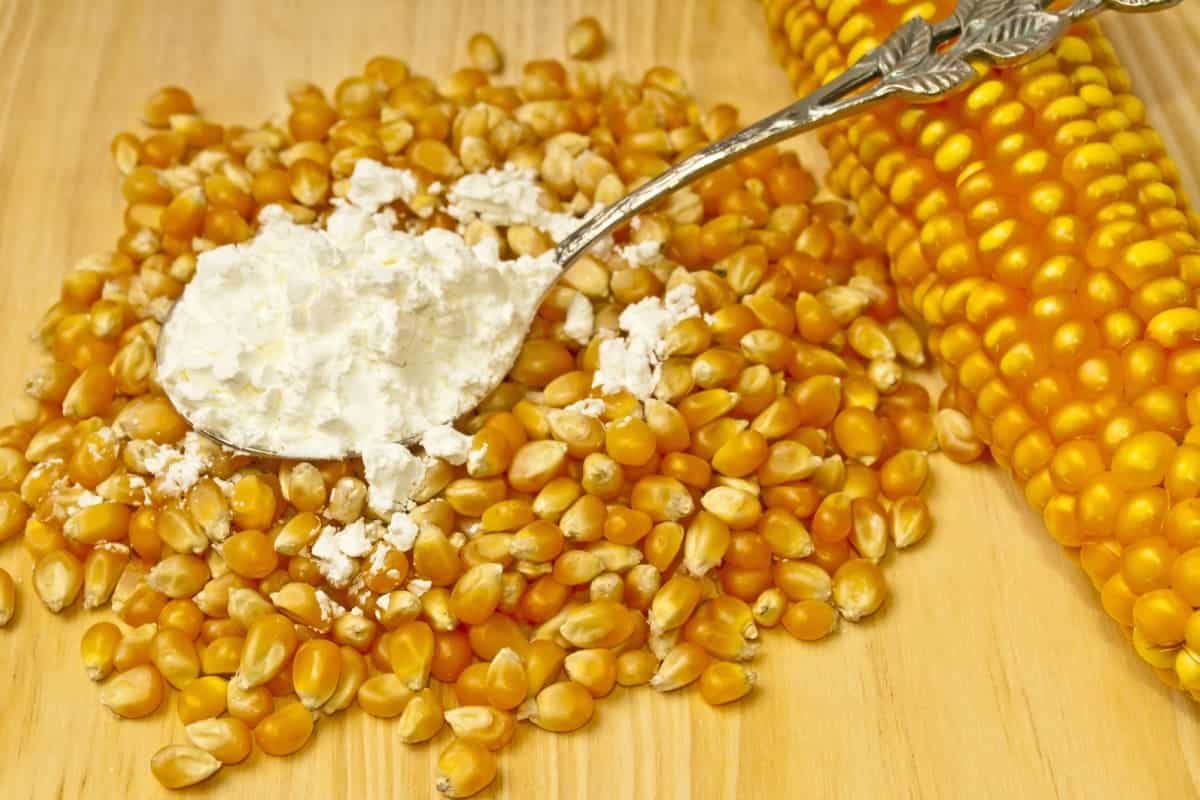
Corn starch is the most affordable and accessible alternative to cassava flour that you surely have in your pantry. Its neutral flavor makes it a versatile ingredient for baking and cooking.
I also love that substituting cassava flour with corn starch is easy because you don't have to do any maths. Simply use the same amount as listed in your recipe for cassava flour.
However, corn starch has high calories and carbohydrates, so I only use it as a binding agent and when thickening soups, stews, fillings, and sauces. Simply put, it's best to use it as a substitute when the recipe only requires a tiny amount of cassava flour.
Also, since it's made from corn, you have to check with your guests if any of them has corn allergies.
Best for thickening recipes and binding ingredients.
3. Potato Starch
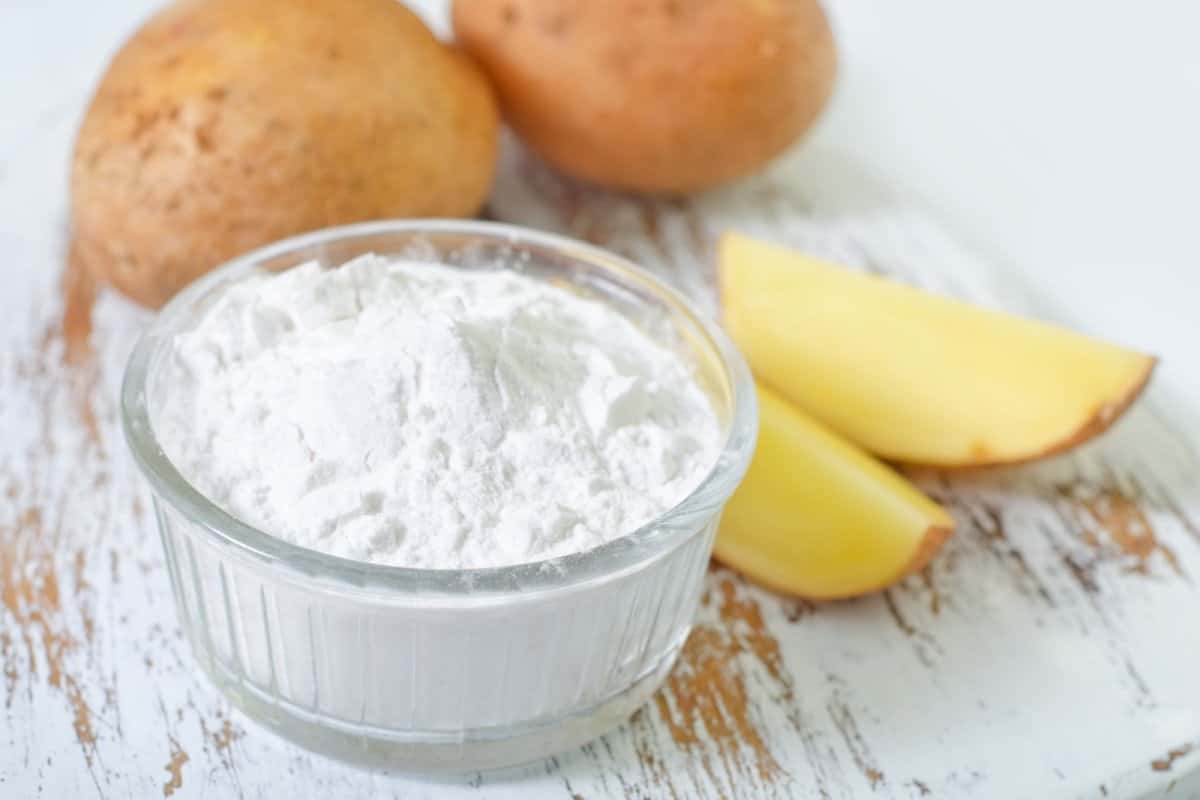
This high-carb, high-fiber, naturally gluten free flour has a flavor familiar to most taste buds. It's my favorite cassava flour substitute for frying or coating food that I need to fry.
Here's a secret: I use it even when I don't need a cassava flour alternative.
Why? Because it produces fried food with light golden brown, crispy crust. It also doesn't absorb and retain too much oil, saving me time and money from using a paper towel to remove excess oil!
So how much do you need to add when replacing cassava flour with potato starch? I add the same amount, so yes, no math is require.
I also sometimes use this substitute for cassava flour in most of my dough and baking recipes, especially when I prepare food that requires a dense texture. However, there's a difference in the substitution ratio.
Since it's heavier than cassava flour, I only add three-fourths of the amount listed in the recipe.
As a thickening agent, I add it gradually to get the right consistency without adding more liquid and other ingredients.
Best for tortillas, bread, frying, and thickening sauces, stews, and soups.
Related: Best Potato Starch Substitutes for Gluten-Free Cooking and Baking
4. Oat Flour
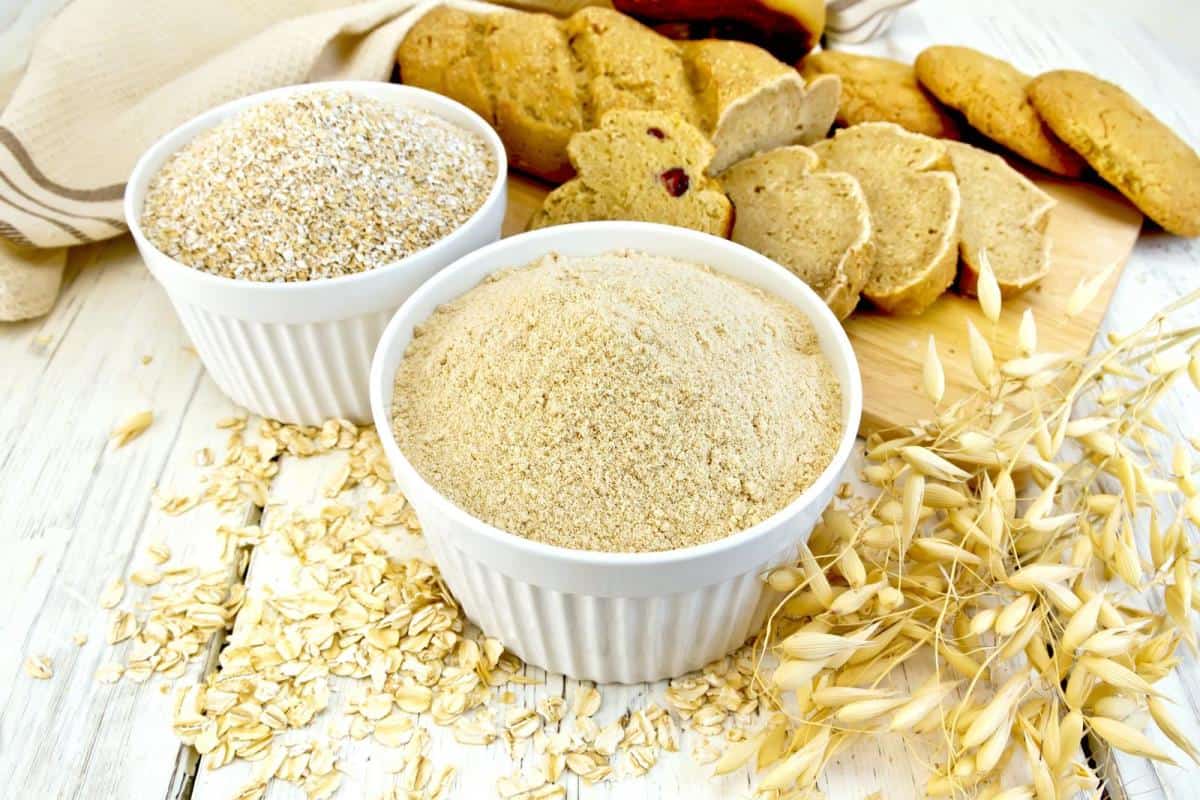
If you need a high-protein, keto-friendly substitute for cassava flour to make gluten free baked goods, sauces, and dishes, my top recommendation is oat flour. Yes, it has a distinct nutty or oat flavor, but it isn't overpowering; in fact, it can even enhance the dish's overall taste.
Hence, I still follow a 1:1 substitution ratio. Of course, you can always reduce the amount in half if you think the flavor will affect the overall quality and balance of flavor.
Best for just about anything.
5. Almond Flour
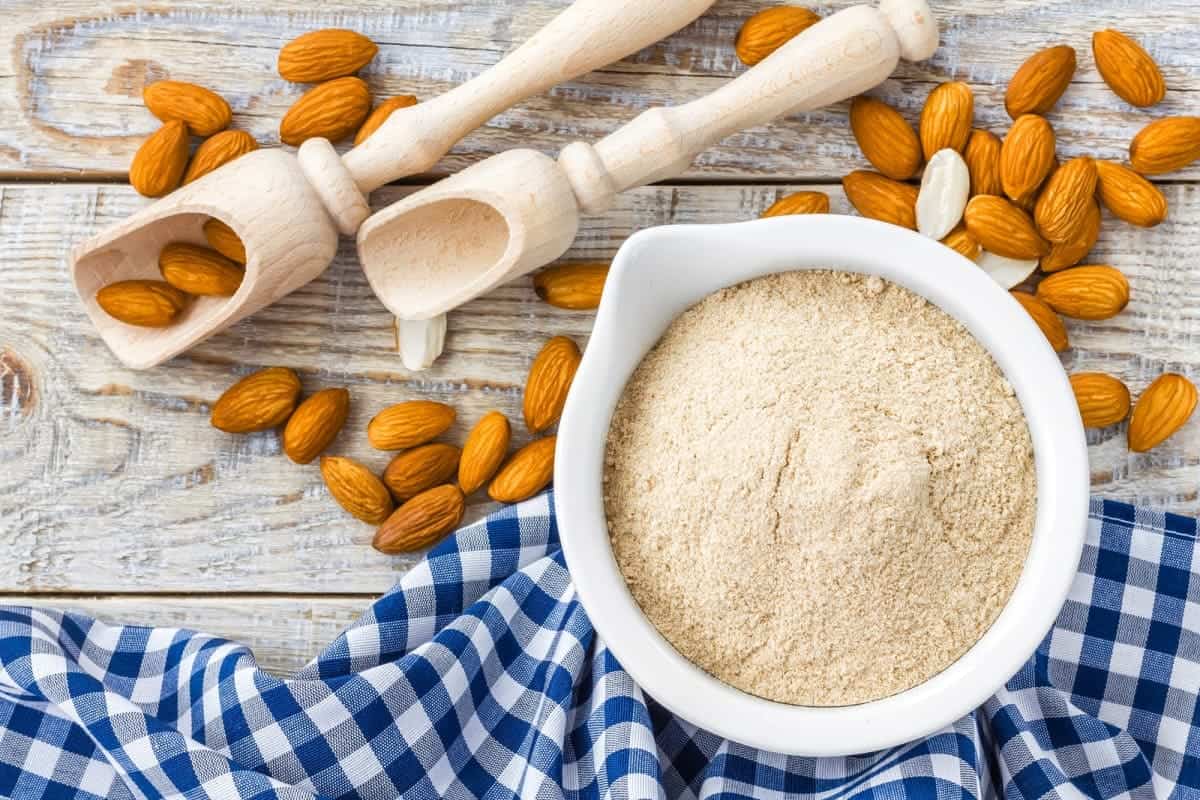
Another one of the best keto-friendly, gluten free flours I use to replace cassava flour in my recipes is almond flour.
While almond flour is my go-to cassava flour alternative for my baked goods, I also use it to make savory dishes and as a thickener. Thanks to the healthy fats in almonds, my baked goodies, especially cookies, bread, and scones, even pancakes and waffles, are moister.
Like oat flour, it has a distinct nutty flavor that will work well for some recipes. Yet again, you can always use half the amount listed in your recipe for cassava flour if you think the nutty taste won't work for your recipe.
Another important thing I want you to keep in mind is to check whether you have guests with nut allergies before using almond flour.
Best for just about anything.
6. Coconut Flour
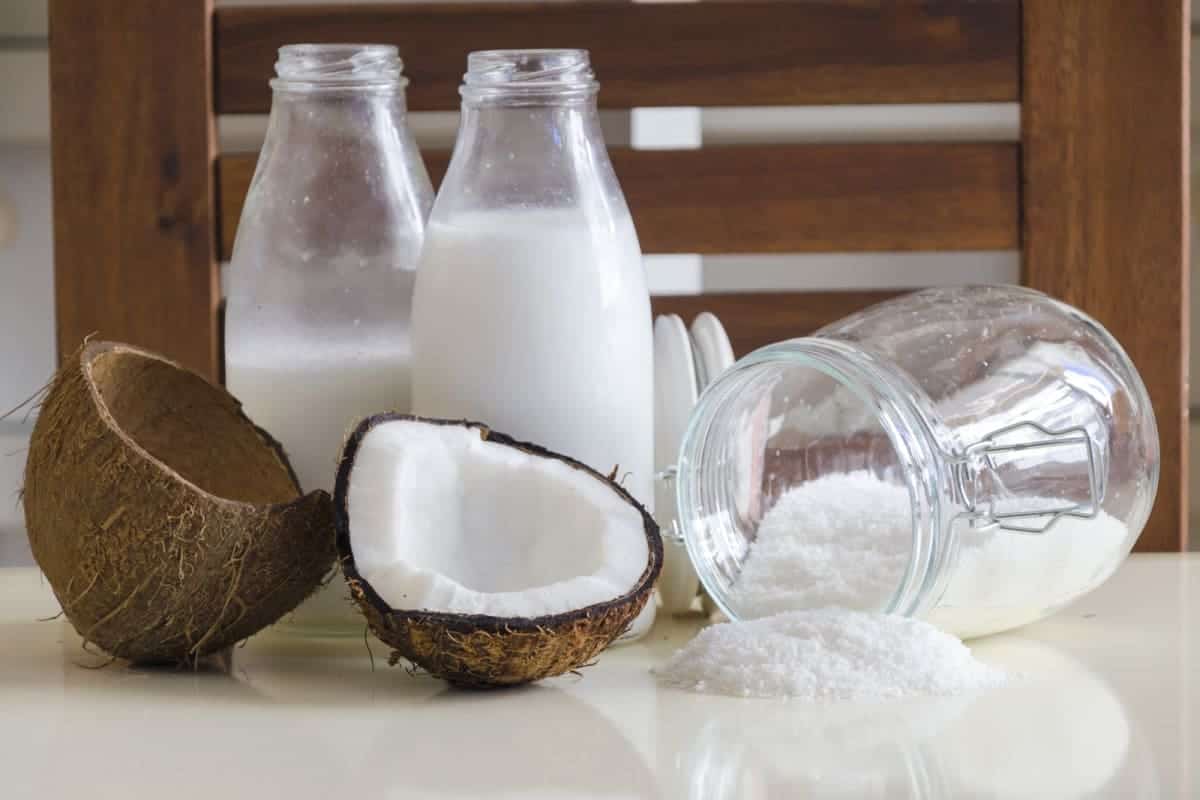
Coconut flour is a nutritious cassava flour substitute ideal for gluten free baking and cooking and when serving individuals following a keto and/or paleo diet.
It has a distinct nutty flavor but is much stronger than almond and oat flour's. It's why I only use a quarter or half the amount of what the recipe calls for cassava flour.
Coconut flour is also highly absorbent, so increasing the amount of liquid ingredients in your recipes is advisable. Otherwise, you might end up with too dry and crumbly baked goods.
Now, when I use coconut flour to replace cassava flour as a thickening agent, I add it gradually to avoid giving my sauces or soups a gum-like texture.
Best for baked goods and thickening sauces and soups.
7. Chickpea Flour
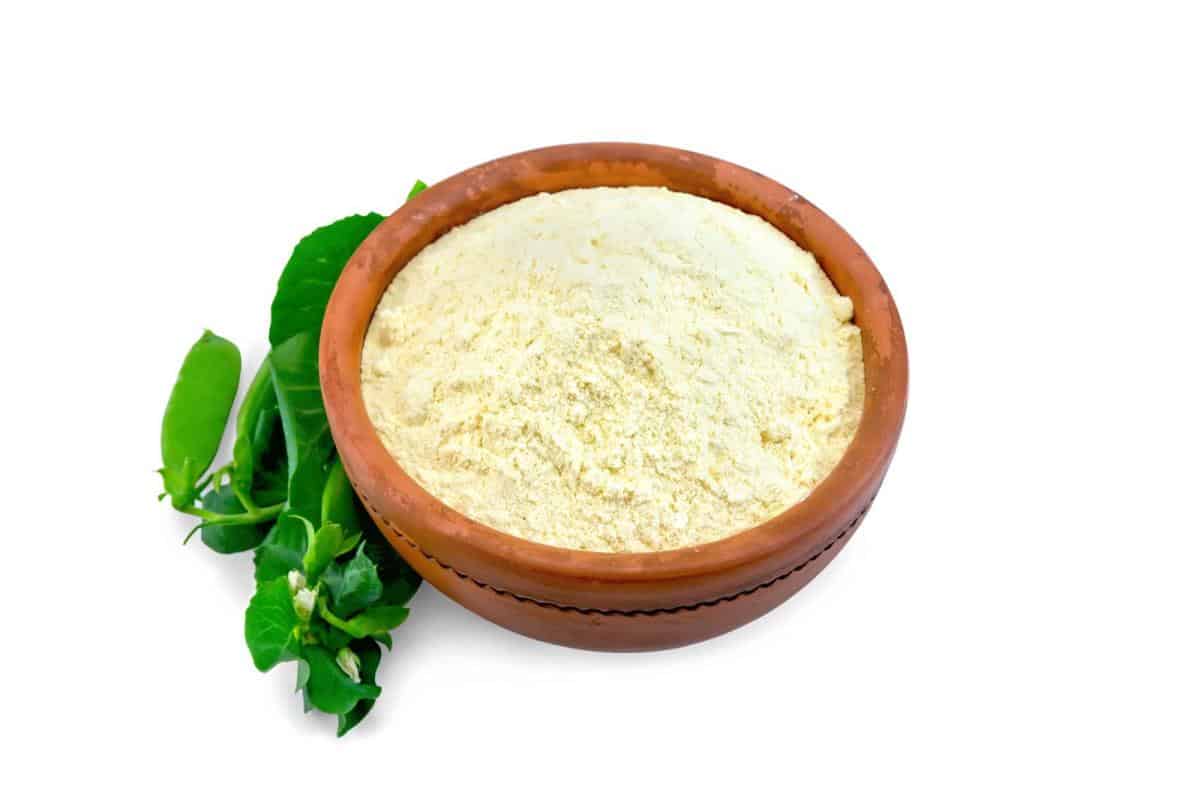
This gluten free alternative for cassava flour is high in fiber, protein, manganese, copper, and other micronutrients.
I love using it to bind the ingredients in my meat burgers, veggie burgers, and fritters. It's also a great replacement for cassava flour in breading or coating recipes.
In terms of substitution ratio, I only add half or three-fourths of the amount required in my recipe because chickpea flour has a strong nutty flavor.
But if you don't mind the nutty flavor because it can make your dish more delicious, you can follow a 1:1 substitution ratio. Or add one cup of chickpea flour for every cup of cassava flour listed.
Chickpea flour is also one of my favorite cassava flour substitutes when I need to thicken my sauces, soups, and stews. But I make sure I add it gradually because chickpea flour is a heavy type of flour.
Best for savory dishes.
8. Arrowroot Flour
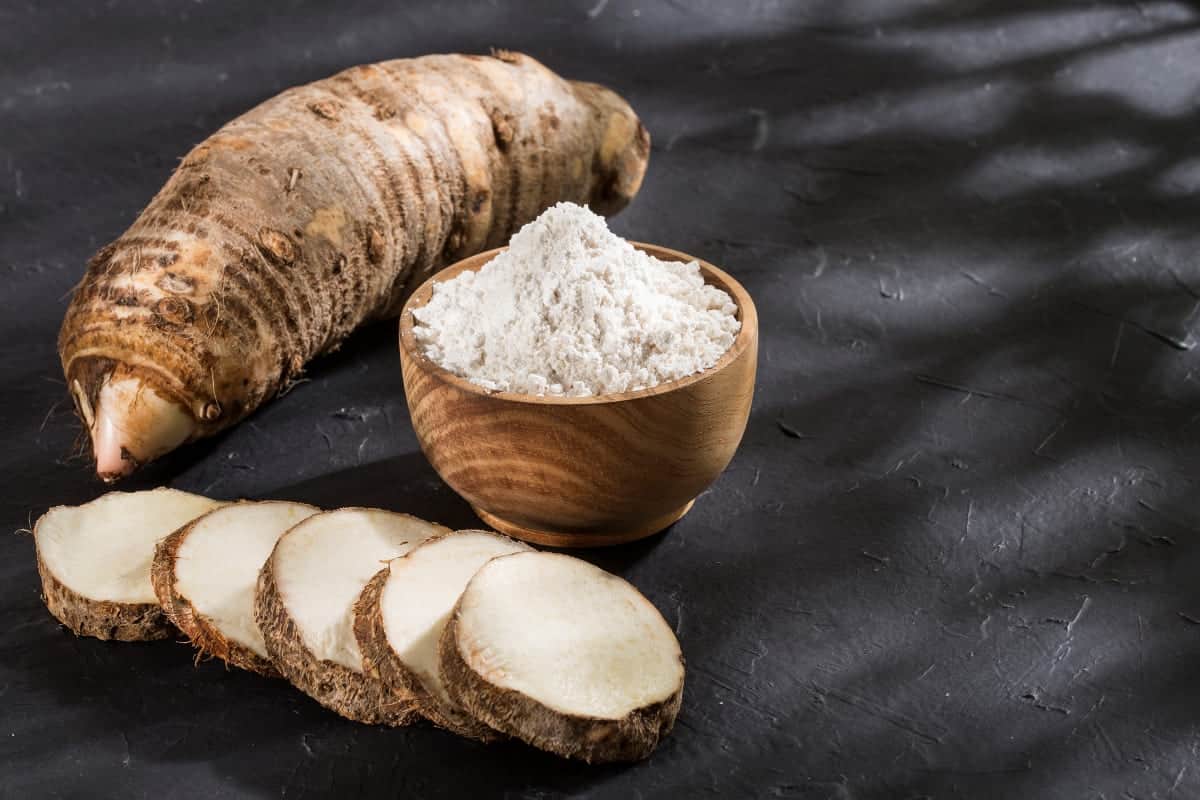
Arrowroot flour, arrowroot starch, or arrowroot powder is one of the healthiest substitutes I love using. Not only does it have many nutritional benefits, but it's also easy to digest.
So don't hesitate to use it as a cassava flour substitute when you're serving individuals with digestive problems.
A standout characteristic of arrowroot flour you need to make a note of is its slightly sweet flavor. It's why it's my favorite flour substitute when making sweet, tasty treats or desserts and thickening my pie fillings and jams.
For these recipes, I replace the cassava flour with the same amount of arrowroot flour.
At times, I also use arrowroot starch in my savory dishes, but I reduce the amount used in my recipe and then mix it with another type of flour.
I combine it with an equal amount of all purpose flour or rice flour for non gluten free cooking or any of the other gluten free flours on my list.
For instance, I combine half a cup of arrowroot powder and half a cup of all purpose flour or another gluten free flour when I need to substitute one cup of cassava flour in my recipe.
Best for baked goods and desserts.
You Might Also Like:
10+ Best Almond Meal Substitutes for Your Baking Needs
Best Sweet Paprika Substitutes for Enhancing Your Dishes
14 Ketchup Substitute Ideas for Delicious, Hearty Meals
Recipe
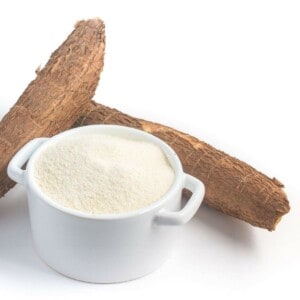
Baking and Cooking With Cassava Flour Substitutes
Equipment
- Oven
- Blender or food processor
- Bowl
- Knife
- Baking sheets
- Parchment Paper
- Fine-mesh colander or sieve
- Airtight container
Ingredients
- 4 large fresh or frozen cassava
Instructions
- Preheat your oven to its lowest temperature setting.
- Wash and peel your cassava.
- Cut each of the cassava into two and remove the thread-like segment.
- Cut your cassava into small pieces.
- Line your baking sheet with parchment paper.
- Put the cassava slices on your baking sheet, making sure they're not placed close to each other.
- Put your baking sheet with the cassava slices inside your oven.
- Allow to bake for 8 to 10 hours until they're dry and crumbly.
- Once done, remove the baking sheet from the oven and place it on your countertop to allow it to cool.
- Put your dehydrated cassava slices in your blender or food processor.
- Pulse until you have a fine powder.
- Place your colander over a bowl, then dump the fine powder you just made.
- Sift to strain large pieces or clumps of flour.
- Place your cassava flour in a glass container and seal it tightly.
Notes
You can find the video in the post above. If you don't see a video, please check your browser settings.


Leave a Reply